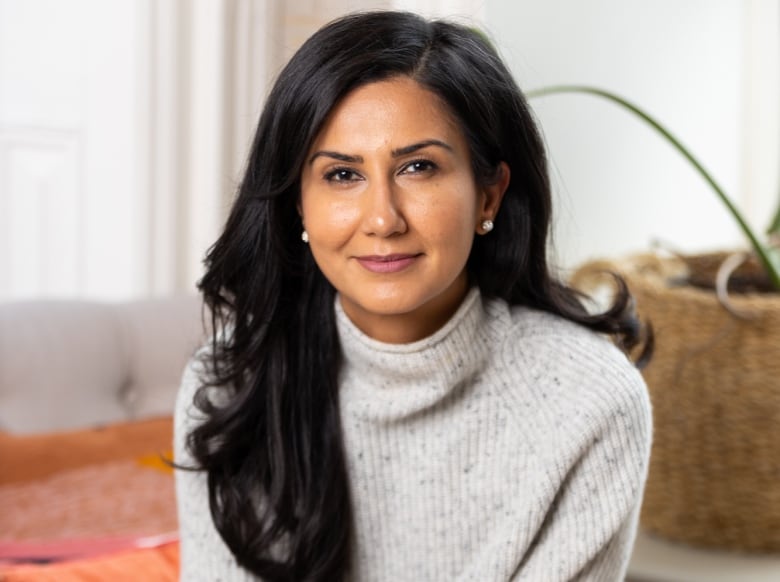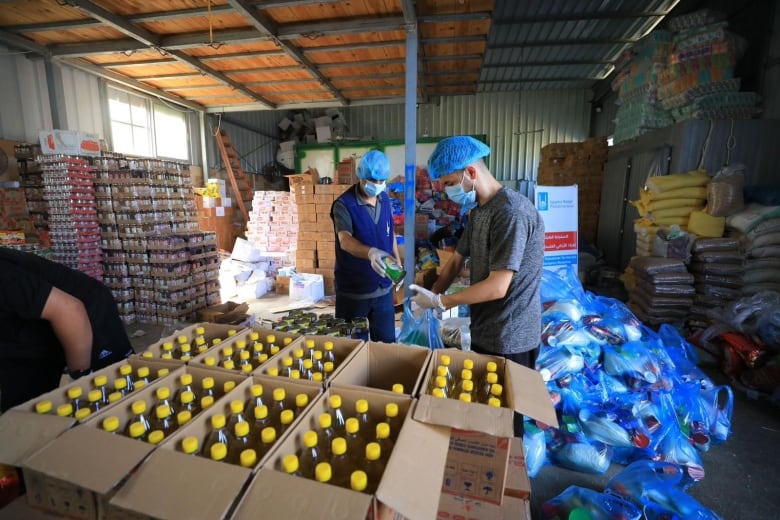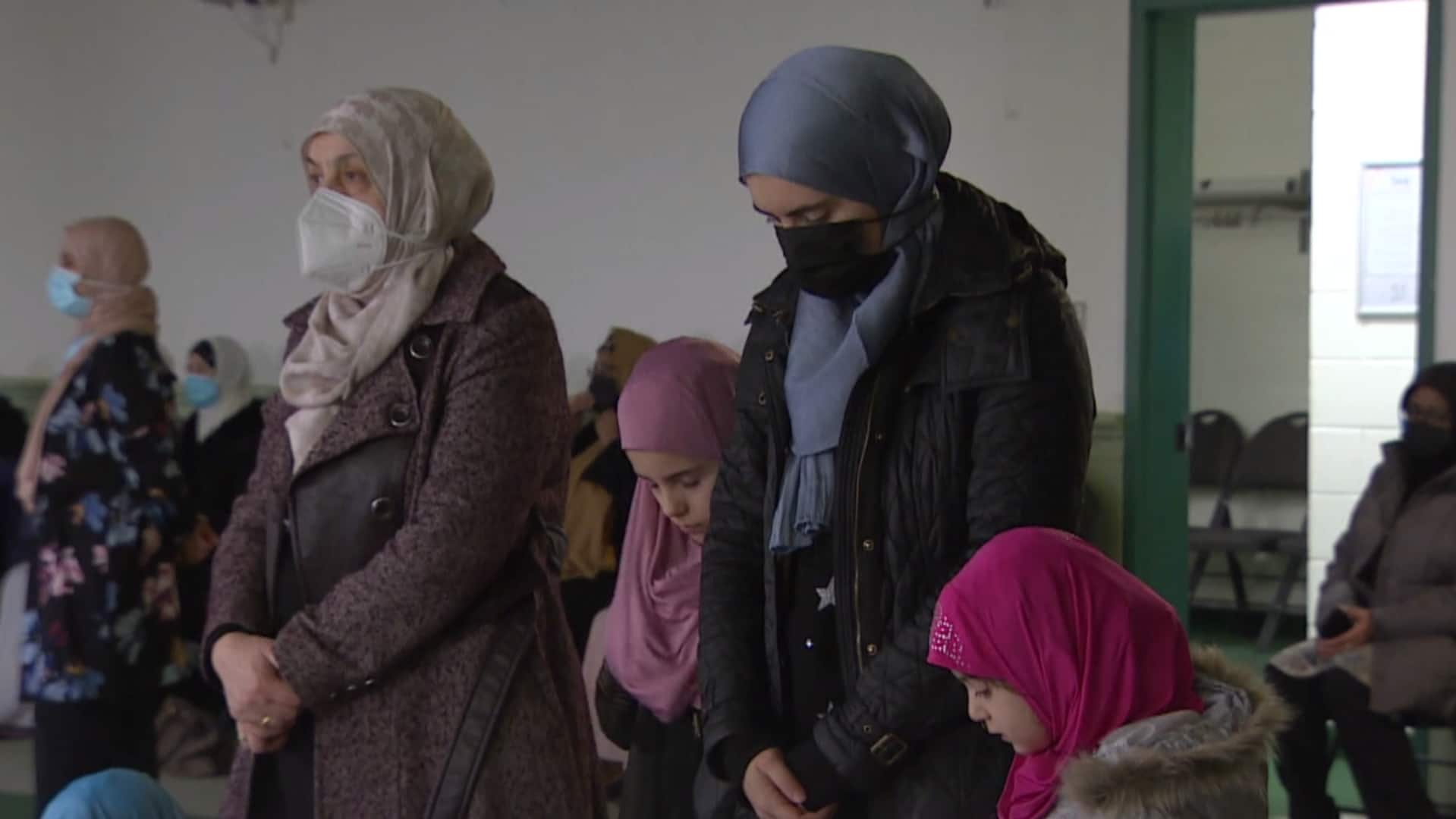Muslims across the Toronto area welcomed the arrival of Ramadan this week, but many say this year is different as the ongoing suffering and loss of life in Gaza remains top of mind.
“It’s really been a sombre start to Ramadan,” said Saima Sarwar, the team lead for western Ontario at Islamic Relief Canada.
“People are wondering ‘Should we even decorate? Should we even have our big gatherings that we normally have?’ And if we do, then [we’re] making sure that we’re showing our solidarity and we’re not forgetting the people of Palestine who are suffering every day.”
Sarwar said fasting — when Muslims refrain from food and drinks from dawn until sunset each day for the holy month — is serving as a reminder of the dire conditions in Gaza, with many grappling with grief and anger as the death toll in the region continues to rise and aid delivery remains severely limited.
The bombardment in Gaza is now into its sixth month after Hamas-led militants launched a surprise attack on Israel on Oct. 7, killing about 1,200 people, according to Israeli tallies. Israel’s responding military campaign in Gaza has led to increased scrutiny across the world, as the growing risk of famine is now adding to a death toll that has already passed 31,000, according to Palestinian figures.
Muslims in various parts of the country, including Manitoba, Toronto and Ottawa, told CBC News that Ramadan is especially heavy this year with the suffering Palestinians are facing amid the war.
Islamic Relief Canada says it has delivered more than two million medical items and roughly 4.6 million meals to those in Gaza.
“Everyone’s thinking about the people there. Everyone’s thinking about what they’re going through,” Sarwar said.
“We have a meal at the end of our day of fasting, but they don’t, and … we’re getting news now that people are dying of starvation. There’s a lack of fuel, there’s there’s no clean water [and] very limited food. There’s been significant levels of dehydration, starvation and disease among children especially.”
While there is greater awareness for those experiencing hunger and a sense of unity by abstaining from food altogether, many Muslims feel a sense of guilt for being able to have a meal at the end of the day when people in Gaza cannot, said Dr. Saunia Ahmad, a Muslim clinical psychologist and director of the Toronto Psychology Clinic.
“A lot of clients talk about feeling quite privileged [and] a lot of guilt about not being in a situation that the people in Gaza are in,” Ahmad said, adding that the war is weighing heavily on the community in particular, though people of different faiths have also been killed in the ongoing violence.
“There’s a lot of anger, hurt, anguish and a feeling of helplessness among Muslims right now,” Ahmad said.

While Ramadan is a joyous month, it also highlights compassion and charity, Ahmad added, though charity does not always have to be financial — it can also be the work people do in their community.
“It’s definitely a challenging time [but] at the same time, [Ramadan] is a time when people come together for community,” she said.
“A lot of people are looking at the month to solidify their connection with God, and with their fellow Muslims as well, and continue to do whatever they can to advocate for peace.”
Ahmad said the clinic has seen an uptick in both Muslim and Jewish clients since October, adding that Muslim clients are experiencing a significant increase in Islamophobia and reporting increased hate.
She said the fear of speaking up in support of Palestinians and being targeted has contributed to a feeling of helplessness.
“There’s definitely a lot of hurt, a lot of fear of speaking up,” Ahmad said.
Feelings of grief, vicarious trauma
Zainib Abdullah, psychotherapist and founder of therapy service Wellnest, has seen a similar rise in demand for therapy services for Muslims and those with ties to the Middle East, particularly over the past five months.
“There is a huge increase in anxiety in the experience of fatigue and [expectations] to show up in the workplace and compartmentalize those parts of ourselves,” Abdullah said.
Abdullah said she has seen a growing number of people experiencing grief, vicarious trauma and feeling frozen or unable to act.
Muslims across the GTA are beginning to mark Ramadan. But as many community members tell CBC’s Talia Ricci, recognizing the holy month is also a stark reminder of the dire humanitarian crisis in Gaza.
Shaffni Nalir, the general manager of the Toronto Islamic Centre, said roughly 200 worshippers walk through the mosque’s doors each night during Ramadan to pray, with Palestinians in Gaza top of mind.
“Every night we are making prayers for our brothers and sisters in Gaza … things do weigh heavily on the community,” Nalir said.
“Different community members are finding different ways to express themselves,” Nalir said, adding that the mosque has hosted different workshops in an effort to fundraise for Gaza.

Nalir says the centre, which serves around 300 meals daily for iftar, the fast-breaking meal after sunset, is welcoming people who want to use the space as a platform for discussions, healing and workshops.
It is hosting a large iftar for people of all faiths to attend on March 27.
‘Ramadan brings everyone together’
In addition to charity during the holy month, Muslims say the fasting and prayer helps the community connect with God and each other, despite polarizing issues.
“You see a lot of people suffering right now, in general across the world,” said Faisal Rafique, who attends the Toronto Islamic Centre.
“Ramadan brings everyone together, praying for the better for everybody.”
Steven Zhou, writer and spokesperson for the National Council of Canadian Muslims (NCCM), says the month, which is a time of contemplation and reflection for one’s life, also is a time to reflect on the well-being of the community.
“It’s very difficult to think about these issues and to contemplate the well-being of our communities without thinking about the kind of trauma and mass violence that continues in the Gaza Strip right now,” Zhou told CBC Toronto.
Zhou said NCCM has written an open letter supported by mosques and community members to MPs who want to speak at Ramadan events, calling on them to condemn the violence and urge for an immediate ceasefire.
“Unless our elected officials at all levels are willing to condemn the mass violence, unless they are willing to endorse the points listed in our joint letter, we do not recommend platforming or allowing elected officials to speak at these venues during Ramadan.”




